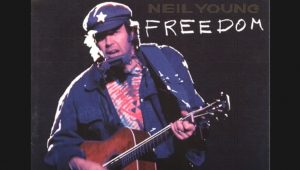The Most Obscure Genesis Songs In Their Discography

Youtube / PhilGenesisDB
Genesis, a band often described as “weird,” has always had a knack for embracing quirkiness even within the realm of progressive rock. From Peter Gabriel’s eccentric stage costumes to their unconventional song structures, Genesis stands out in a genre that isn’t known for playfulness.
Genesis’ discography is filled with hidden gems that showcase their willingness to explore the unconventional. These obscure songs reveal the band’s artistic eccentricity, making them essential listens for any Genesis fan seeking a deeper understanding of their unique musical universe.
“Pigeons” (from 1977’s Spot the Pigeon)
In an unexpected move, Genesis ventured into music hall territory with “Pigeons.” Inspired by British performer George Formby, the track features Tony Banks’ playful keyboards bouncing off Steve Hackett’s banjo-like twang. Its simplicity and offbeat nature make it an acquired taste.
“Harold the Barrel” (from 1971’s Nursery Cryme)
Bright yet bleak, hyperactive yet horrifying, “Harold the Barrel” is a standout track. The piano-driven melody clashes with Mike Rutherford’s slippery bass, creating a mutant pop song. Gabriel and Collins deliver the tale of the tragic Harold in a cartoonish unison, adding to the song’s peculiar charm.
“Down and Out” (from 1978’s … And Then There Were Three …)
Featuring a rhythm that borders on madness, “Down and Out” showcases Collins’ fierce drumming skills. Its intricate prog elements make it an outlier on the album and a challenging piece to perform live, as Genesis only played it 38 times.
“The Musical Box” (from 1971’s Nursery Cryme)
“The Musical Box” marked Genesis’ first full-fledged prog epic. From its childlike 12-string chimes to thunderous pseudo-classical passages, the song exemplifies the band’s progression into the realm of weirdness. Gabriel’s warped Victorian fairy tale lyrics add an extra layer of peculiarity.
“Watcher of the Skies” (from 1972’s Foxtrot)
Even Geddy Lee, the bassist of Rush, acknowledged the weirdness of “Watcher of the Skies.” Its intricate layers of melody, odd time signatures, and strange guitar riffs create a mesmerizing experience. Gabriel’s vocals smoothly intertwine with Rutherford’s fidgety main rhythm, resulting in an early Genesis classic.
“The Return of the Giant Hogweed” (from 1971’s Nursery Cryme)
Telling the story of a vengeful botanical creature, “The Return of the Giant Hogweed” stands out with its heavy sound and Gabriel’s aggressive vocal delivery. The song’s oddity lies not only in its concept but also in its musical composition.
“The Battle of Epping Forest” (from 1973’s Selling England by the Pound)
“The Battle of Epping Forest” is a divisive moment on Selling England by the Pound. Gabriel’s tiring lyrics, filled with goofy character names and ridiculous accents, make it a love-it-or-hate-it experience. Inspired by rival London gangs, the song presents a distorted epic war story.
“The Waiting Room” (from 1974’s The Lamb Lies Down on Broadway)
While categorized as an instrumental link, “The Waiting Room” feels more substantial than its description suggests. Its improvised studio jam captures the band’s exploration of darkness and light, evoking the sensation of strolling through a haunted house before emerging into a field of sunflowers.
“The Colony of Slippermen” (from 1974’s The Lamb Lies Down on Broadway)
“The Colony of Slippermen” stands out not only for its stage presentation but also for its musical composition. This cryptic concept album track transitions from ambiance to a jagged prog-funk groove, featuring fragmented yet fascinating ideas. Gabriel’s lyrics add another layer of bizarre imagery to the mix.
“Supper’s Ready” (from 1972’s Foxtrot)
Topping the list is the epic “Supper’s Ready,” a dream journey filled with surreal religious imagery. Its structure, comprising seven distinct musical sections seamlessly stitched together, presents a puzzling puzzle for listeners. From the gentle arpeggios of “Lover’s Leap” to the dark and proggy “Apocalypse in 9/8,” this masterpiece epitomizes Genesis’ ability to create a captivating and bizarre musical experience.











